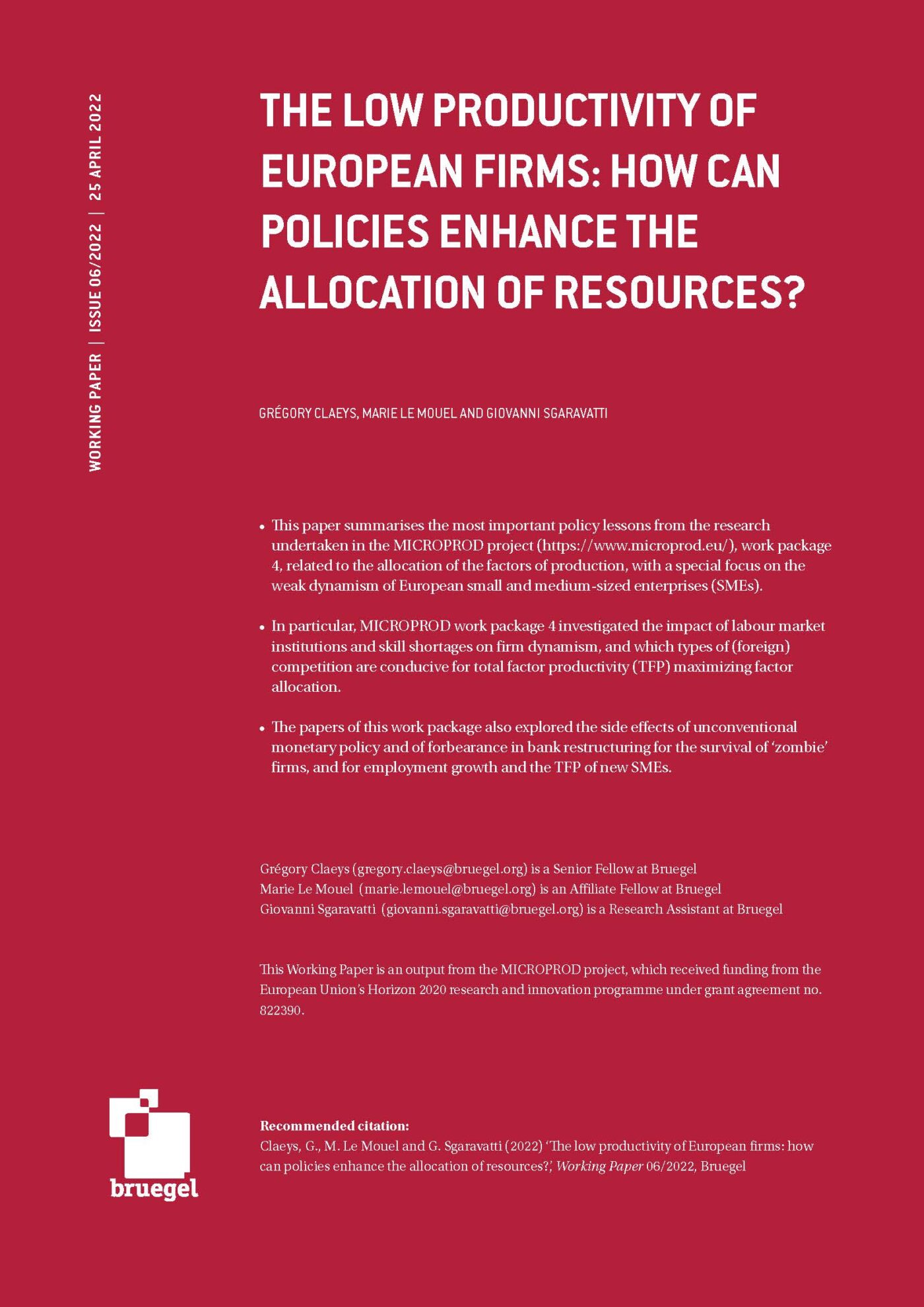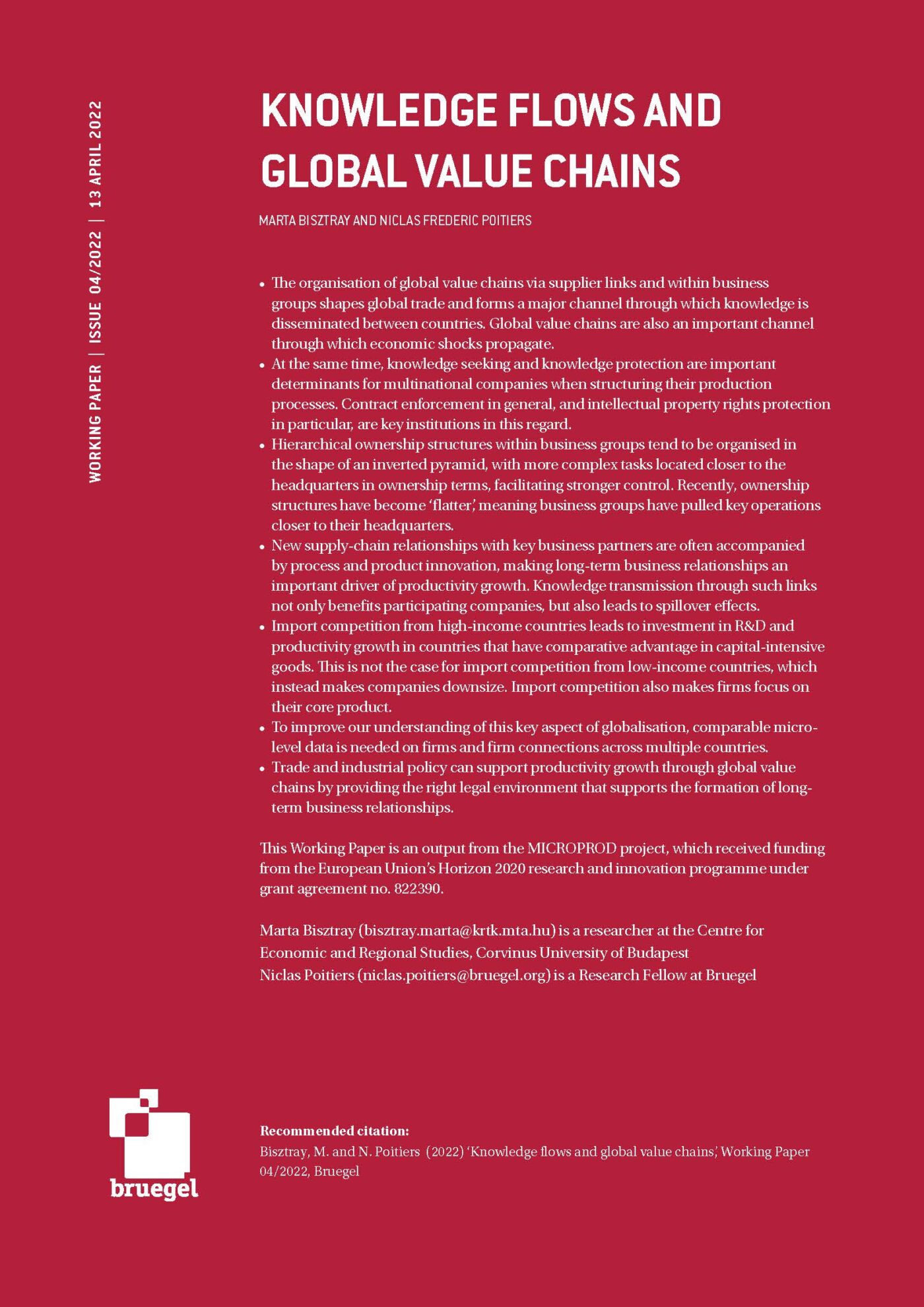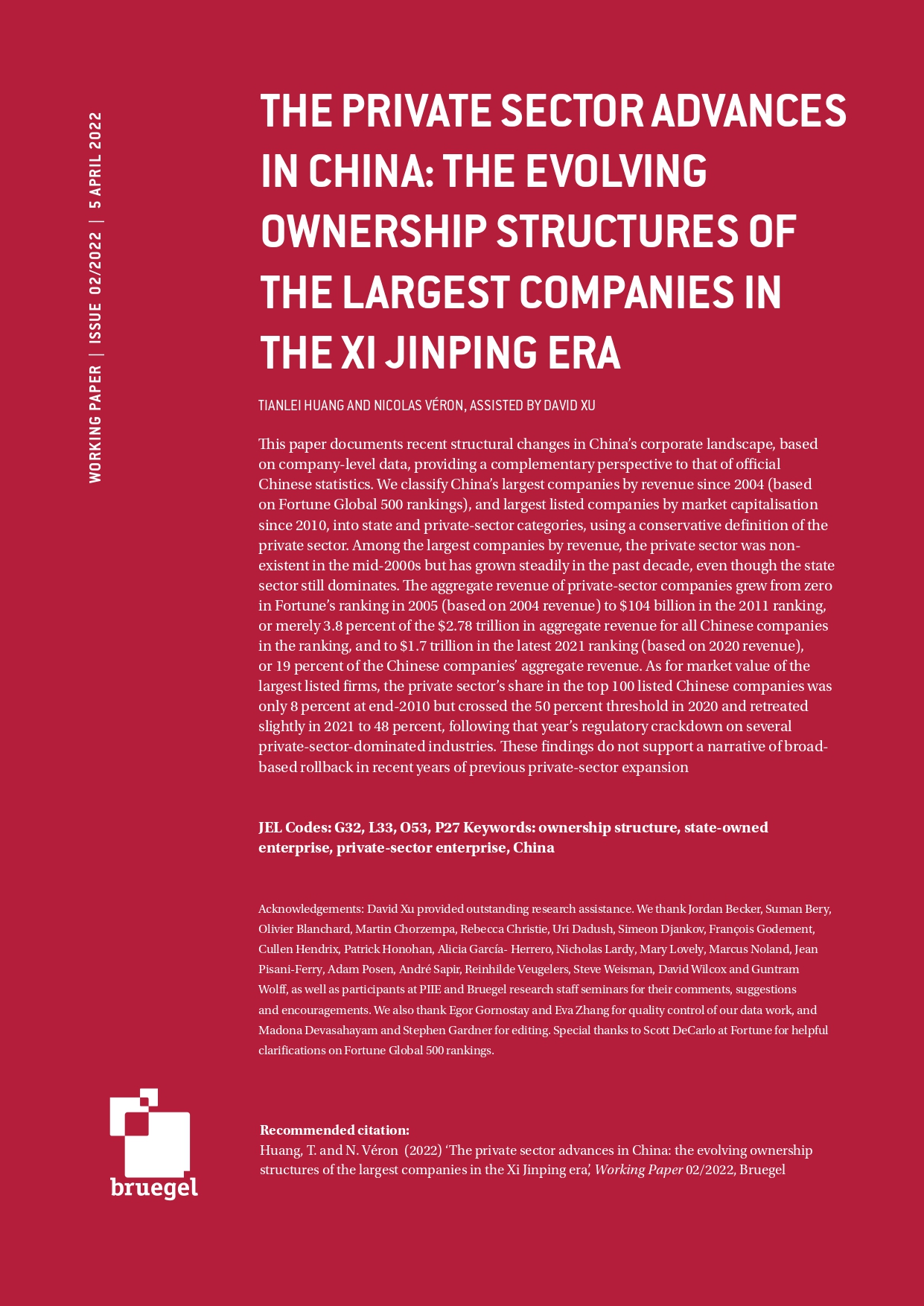Blog Post
Not all foreign investment is welcome in Europe
A new plan to tackle foreign subsidies would empower the European Commission to investigate foreign investments in the European Union, with Chinese investment particularly in the spotlight. This increased scrutiny could deter some investors. Overall however, fairer competition is worth some lost opportunities.
Imagine that the Tour de France allowed non-French competitors, and only non-French competitors, to use performance-enhancing drugs. Now imagine these rules were changed to ban the use of drugs for all competitors. It would surely make for a fairer race. But at what cost? Testing expenses would grow. False positives would rise. Burdensome testing procedures might deter foreign entrants.
Similar trade-offs arise in the European Commission’s plan, published in June, to redress its unfair subsidies regime. Under current European Union rules, foreign businesses can invest in Europe using subsidised capital. But European businesses generally cannot (unless granted an exemption).
Under the new rules, the Commission would treat all subsidised capital the same, no matter its origin (note that the Commission plan also addresses subsidies in the context of services imports, public procurement and EU funds, which will not be discussed here). But the new rules could deter global investors. Is it worth the risk?
Gaps in EU anti-subsidy rules
Last year 3 million e-bikes were sold in the EU. In 2017, one in three of them were made in China, whose manufacturers had managed to double their share of the European market in just three years. The rapid acceleration was powered by aggressive pricing which punctured European competitors. It also aroused suspicion. Were Chinese manufacturers really that much more efficient?
A European Commission investigation found they were not. Chinese e-bike makers received government support in the form of tax breaks, cheap loans and discounted materials. These subsidies gave Chinese producers a significant cost advantage over their European competitors. To rebalance competition, the EU imposed countervailing duties on the import of Chinese e-bikes; up to 79% for some suppliers.
Now suppose that one of the e-bike manufacturers had used its government support in a different way: to acquire a promising European rival rather than simply to make cheaper bikes. Further, suppose that the subsidised acquirer ‘S’ has much less experience than other potential acquirers. Without the subsidies, the owners and creditors of S would have deemed the transaction too risky for the high bid. But thanks to subsidies, S outbids all other potential buyers.
When such cases arise, the EU is powerless. Mirroring the World Trade Organisation (WTO) agreements on which they are based, EU anti-subsidy rules only apply to the import of goods. Subsidised foreign capital can flow freely through the single market. Is this cause for concern? As our example shows, subsidised capital raises the value of European assets and competitors benefit from spill-over effects. Seen from this point of view, one might think there is not a problem.
However, subsidies divert resources away from their most effective use. Market share, efficiency gains and technology are captured by subsidised firms at the expense of non-subsidised but potentially more efficient rivals. And if they artificially inflate prices, subsidised acquisition can cause further damage. They can make efficient consolidation harder to achieve and make abrupt readjustment more likely in the future – thus creating or amplifying economic shocks. Consumers also lose out. In the e-bike example, the acquired firm does not live up to its full potential under S’s mediocre management.
As they stand, anti-subsidy rules leave European businesses vulnerable to harmful distortions. The rules are also unfair because what they allow for foreign businesses is unavailable to their EU counterparts.
Redressing double standards
The EU’s state-aid and anti-subsidies regimes share the same objective: to prevent government support from distorting competition in the single market. Their scope is different, however. State-aid law addresses the problem at its source: it is a constraint on EU governments. Anti-subsidy rules apply downstream, to foreign companies (the EU not having authority over foreign governments).
Under the current framework therefore, a foreign business can buy a European firm with government money, while a European business cannot because it would not have been allowed to receive the government funding in the first place (unless granted an exemption by the Commission).
The Commission’s plan on tackling foreign subsidies would empower the Commission to investigate foreign businesses suspected of using subsidies to facilitate investments in the EU and distort competition. Investigations would work as follows. The Commission (the likely competent authority) would first determine the existence of a foreign subsidy and, in a second step, assess whether the subsidy is likely to distort competition in the single market. Subsidies would be deemed more likely to distort if the subsidised entity benefits from privileged access to its domestic market, among other things. Finally, the Commission would weigh the negative effects against possible benefits – job creation, for example – before considering remedial measures.
The proposal also includes a novel screening instrument for mergers and acquisitions (M&A). Foreign acquirers of EU firms would have to undergo checks to verify that they are not using subsidies to finance deals (with exemptions for subsidies under €200,000). If it emerges that foreign acquirers are using subsidies, the Commission would have the power to block the transaction or impose redressive measures, such as subsidy repayments or divestments.
Lost opportunities
The proposed new rules would impose new administrative burdens on foreign investors and increase legal uncertainty, potentially slowing down the flow of foreign investment into Europe at a time when it would benefit from more, not less, trade. M&A procedures are already costly for businesses. Additional notification requirements might deter strong candidates. They could even be counter-productive if the higher costs discourage all but those with the deepest pockets (who are more likely to be subsidised).
New rules could also create legal uncertainty. How will the Commission link subsidies to acquisitions? Which subsidies will count as distortive? How will the Commission treat investments from Sovereign Wealth Funds? To mitigate uncertainty, rules could be set very narrowly. But even then, it would take years for the Commission to build robust legal precedents that cover all cases. In the meantime, some foreign investors will leave deterred. Some lost opportunities might be a price worth paying for fairer competition. But such cost-benefit reasoning requires that the benefits outweigh the costs. Can the new rules bring about the promised benefits?
Difficult enforcement
One of the main challenges will be to obtain information from foreign firms and governments. Neither have strong incentives to cooperate when providing information that could lead to blocked transactions.
In the e-bike case for instance, the Chinese government refused to comment on a central piece of incriminating evidence (the China Bicycle Association’s five-year plan). The government justified this refusal by claiming that it was unable to identify the document, though it was readily available online.
Difficulties in gathering evidence and limited international cooperation are not new, but risk aggravating the process of investment screening. Anti-subsidy cases have to move fast, or risk non-subsidised competitors dying in the meantime. Investigations often take seven to eight months. In the M&A context, this is very long. For the most complicated cases, 7.5 months is the legal deadline (less than 2% of all transactions in 2020). The average deal is cleared by the Commission in 18 days.
Under increased time pressure, authorities will be limited in their ability to gather information and identify subsidies. This could put companies from more cooperative jurisdictions at a disadvantage compared to companies from less cooperative jurisdictions. The risk has been exacerbated by the coronavirus, which has made subsidisation more common throughout the world.
In an ideal world, cooperative agreements would allow for smooth information sharing between nations. In the current context however, enforcers are limited to imperfect data. But the prospect of difficult enforcement is no justification for retaining unfair rules. Rather, it is an invitation to think hard about ways to improve on the current limitations.
The geopolitical context
The value of Chinese investments in Europe is increasing, but EU companies are finding it harder to invest in China. The lack of reciprocity in market access has long been contentious and is a major obstacle to the completion of an EU-China investment treaty.
Lack of market access in China is unfair to European firms in China but also disadvantages them in Europe. By insulating Chinese firms from foreign competition on the domestic market, the Chinese government enables the emergence of dominant firms in China. These new behemoths may leverage their artificially-gained power abroad and are a threat to global competition. EU-China discussions on these issues have stalled.
In this context, the new anti-subsidy rules can be seen as a tool to ramp up the pressure on China and gain greater leverage when negotiating access to China’s internal market. But the proposal is also good and deserves to be welcomed as more than a bargaining chip.
Subsidised investments distort European markets, allowing subsidised businesses to grow at the expense of more efficient rivals. That is why they are banned for European firms. Fairness requires that foreign companies be subject to the same restrictions. Foreign firms should not be allowed to outspend and outbid their European rivals just because they have the backing of a nation state. The health of European markets depends on it.
Effective enforcement will be a challenge and may slow down foreign direct investment. Still, we police doping in sport, even if it slows down the spectacle. Ultimately, we want to have faith in the result and cling onto the idea that everybody should have a chance to earn the yellow jersey.
Recommended citation:
Anderson, J. (2020) ‘Not all foreign investment is welcome in Europe’, Bruegel Blog, 10 November
Republishing and referencing
Bruegel considers itself a public good and takes no institutional standpoint. Anyone is free to republish and/or quote this post without prior consent. Please provide a full reference, clearly stating Bruegel and the relevant author as the source, and include a prominent hyperlink to the original post.









